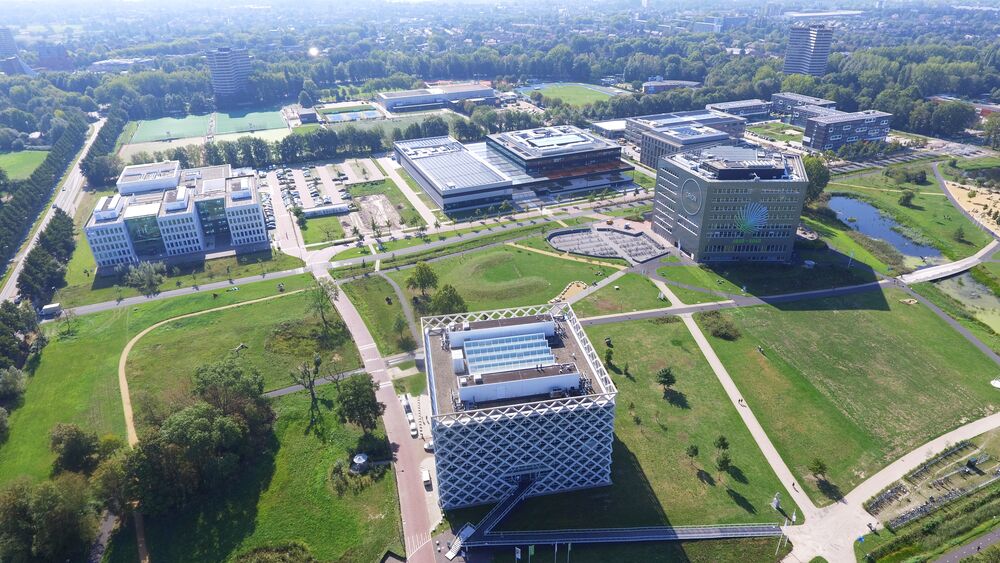The RUW foundation, Otherwise and Wageningen Dialogues organise three events on the impact of collaboration between WUR and the business sector.
The first event kicked off on Tuesday, 25 May, with an online talk show with a variety of speakers. From student and Extinction Rebellion-activist Solina Diallo to Manfred Aben, leader of the Unilever Foods Innovation Centre on the campus. Anne Mensink (business developer Wageningen Campus), Bram Büscher (professor of Sociology of Development and Change) and Ernst van den Ende (general director of the Plant Sciences Group) also took part.
According to Van den Ende, WUR aims to apply its knowledge towards finding solutions to the significant challenges of this time. These challenges include food security and climate change. WUR strives to address these challenges through collaboration with a large variety of partners, which includes the business sector. This allows start-ups to innovate, and multinationals to create impact.
Systems change
Büscher has a more critical view of these collaborations. ‘There are different aspects, such as the bizarre inequality in the world and climate change. Our economic system hinges on never-ending economic growth, and this is quite the opposite of what is needed to solve these issues. Most companies put economic growth ahead of sustainability.’
In practice, various factors, including collaboration with the business sector, put Wageningen University’s independence at risk, says Büscher. ‘Chair groups receive insufficient funding for their research from the university and are thus forced to find funds elsewhere. If you need money, there is pressure. This pressure makes it more difficult to stick to your principles. To remain relevant, universities should stay independent of political and economic influence. In recent years, WUR has done the opposite.’
Join the conversation
Student/activist Diallo sides with Büscher. According to her, partnerships with businesses are often presented as a win-win situation. ‘But many students don’t feel this is true. As a university, it is our responsibility to be as independent and critical as possible. We must reflect on our role and on who we should partner with. Who decides what parties can settle on the campus? When is the business sufficiently sustainable? People at the university want to join the conversation.’
Van den Ende stresses that WUR collaborates with governments and NGOs, and not just with the business sector. ‘Only four per cent of the university budget originates from the business sector, which is similar to the other universities in the Netherlands. Ultimately, the discussion is about autonomy. If our independence is under threat, that would be a huge red flag. I agree on this with you.’
Büscher: ‘WUR is made up of a university and a research institute. Collaboration is stimulated under the One Wageningen banner. I, and others with me, are critical. Of course, we can collaborate. But, if we want to maintain our independence, the university’s position must remain separate from the Wageningen ecosystem.’
To be continued
Büscher and Van den Ende are in agreement over the role of the government. There is too little funding for education and science. The money that has been added over the years in no way equals the increased student numbers, according to Büscher. ‘There is a structural deficit, of which the current situation is a result.’
‘In short: the problem is bigger than WUR’, a participant concludes in the chat. After one and a half hours, it is time to wrap up, but the participants are nowhere near finished discussing. To be continued on 8 and 22 June. Register here.

 Businesses on campus, among which FrieslandCampina and Unilever. Photo Ergo Mediaproducties
Businesses on campus, among which FrieslandCampina and Unilever. Photo Ergo Mediaproducties